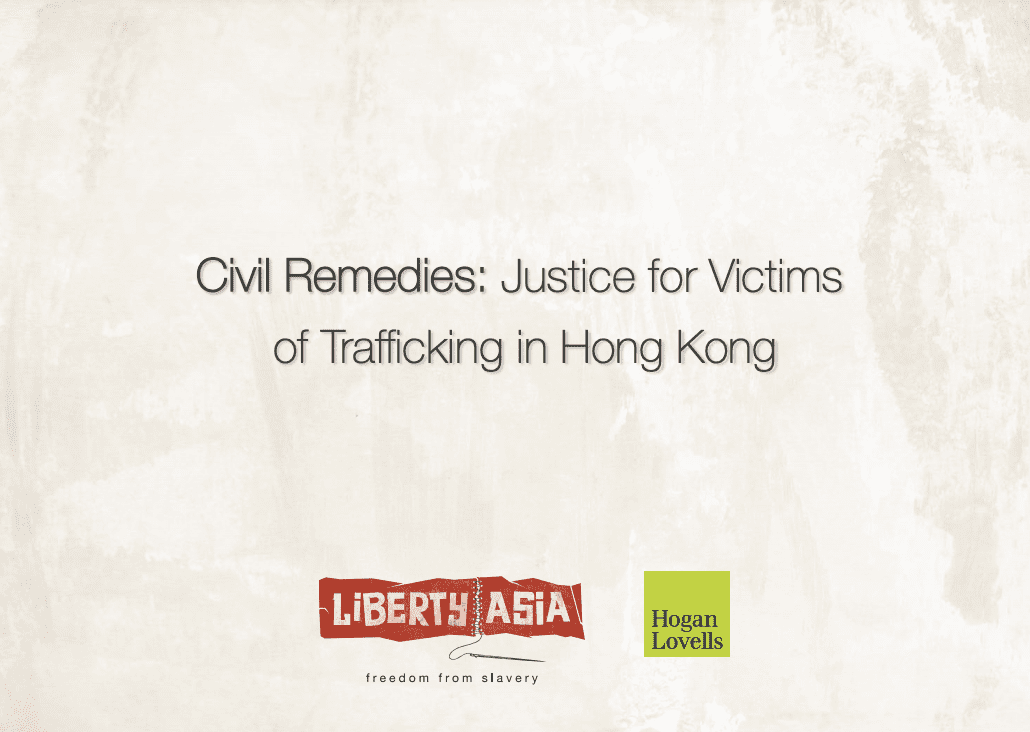
Civil Remedies: Justice for Victims of Trafficking in Hong Kong
Introduction
The crime of trafficking and the ensuing criminal justice proceedings if any can be extremely disempowering to victims as they both take away the victim’s autonomy. In many cases criminal proceedings fail for a number of reasons and there is a real risk that the victim will not be granted justice in any shape or form. Civil remedies provide an alternative and/or supplement to criminal proceedings and are attractive as a means of holding perpetrators accountable but also providing victims with some compensation for harm they have endured and losses incurred. Although the use of civil remedies is gaining popularity in many jurisdictions across the world it still remains largely under-utilised.
This report provides a comprehensive overview of various civil remedies available under Hong Kong Law and comments on their applicability to trafficking victims. Remedies in contract, tort and pursuant to the Basic Law together with the eligibility criteria and judicial procedure(s) for each remedy are examined. We hope that despite the difficulties presented by the ability to remain in-country to pursue justice and the fact that compensation for victims remains a low priority, this Report will provide a creative means of informing front-line responders of different approaches that can help secure justice for victims. Lawyers and NGOs engaged in legal service provision will find this Report very useful in their daily work.
Whilst the challenges abound in victims’ quest for justice, there is hope. Service providers equipped with better knowledge and information can help victims achieve justice through various means. This Report is about sharing knowledge with practitioners and offering hope to victims. Sincere thanks and gratitude to Hogan Lovells’ team of pro-bono lawyers who have dedicated much time, thought and effort in getting this Report together. We are very grateful for your hard work and thankful for your partnership
Executive Summary
- Victims of trafficking do not have a civil right of action against their traffickers for damages for the act of trafficking itself. However, there are a number of other potential civil claims that may be relevant in the circumstances of trafficking, depending on the facts of each individual’s case. These include tortious claims such as trespass to the person, sexual harassment claims and employment law claims.
- Overarching charters and the Basic Law of Hong Kong seek to protect basic civil rights, but these laws and charters do not of themselves provide an avenue for a civil claim.
- Tortious claims are likely to apply to many trafficking situations. Even if the person against whom damages are claimed may not have sufficient resources to be in a position to pay a significant award of damages, the publicity and deterrent effect of bringing test cases in the Hong Kong Courts are likely to have value.
- Employment tribunals are unlikely to offer an effective remedy for victims who are not legally employed.
- There are other possible avenues of compensation for victims of crime including the Criminal and Law Enforcement Injuries Compensation Scheme, although there are a number of eligibility criteria to fulfil before access to this scheme can be gained.
Read more here.
